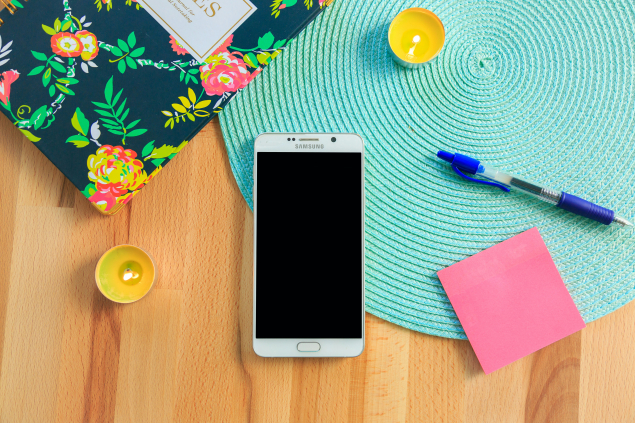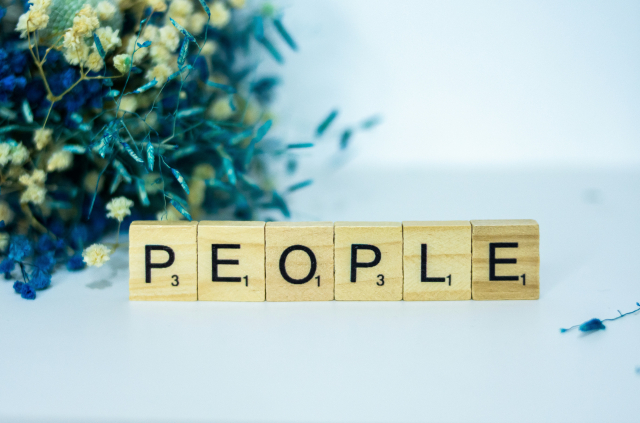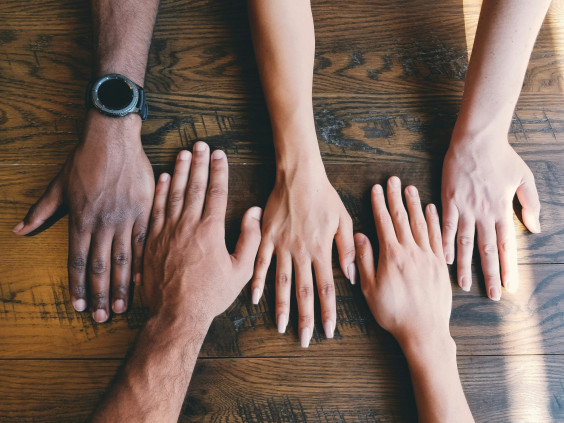Blog
A Call to Action – Let’s Co-Create the Next Chapter of Health Care Together
Healthcare is at a crossroads. We stand between what we’ve always done and what we know is possible. The future will not be built by institutions alone. It will not be shaped by policymakers, clinicians, researchers, or innovators alone. And it certainly will not be defined for patients without them (#nothingaboutuswithoutus , am I right?!)
The next chapter of healthcare must be co-created with patients, not merely around them.
Over the past four articles, we explored how patients can meaningfully contribute to improving healthcare through knowledge, language, education, emotional connection, and lived experience. Yet, knowledge alone does not transform an entire complex system, like healthcare. Action does.
So here is my invitation. To you, to myself and my peers, to all of us:
1. Invite patients in before the decisions are made
Pull people with lived experience into the design phase, not the launch phase. A seat at the table is powerful. A voice shaping (or helping to construct) the table is transformative.
2. Replace assumptions with conversations
Ask those who know, i.e. people with lived experience, what matters, not what’s the matter. Their priorities, fears, motivations, pain points, and definitions of “success” has the potential to change the trajectory of any project for the better.
3. Build feedback loops instead of one-off interactions
Shouting this from the rooftops: lived experience involvement is not a checkbox. It’s a relationship. Make engagement with us collaborative, continuous and measurable.
4. Use real-life expertise to drive clinical, operational, and economical value
People’s lived experience is a data stream. The insights reduce waste. Real-life preferences improve adoption. Lived (or loved) experience outcomes define value. This is not a “nice-to-have.” It is a strategic advantage.
5. Commit to a shared future
A future where healthcare is equitable because it is designed with real human experience in mind.
A future where PWLE are treated as partners, not passengers.
A future where innovation is meaningful, not decorative.
A future built on trust, transparency, and shared ownership.
We already know what needs to change.
The question is if we are brave enough to build it together?
If you are ready to co-create this next chapter, whether as a clinician, researcher, policymaker, innovator, payer, industry leader, or fellow lived experience expert, then let’s talk. Let’s shape the next generation of healthcare hand in hand, from the very beginning.
Because the future of healthcare is not happening to us. It is happening with us.
And it starts now.
From Burnout to Belonging: Humanizing the Diabetes Experience
The Side of Diabetes We Don’t Talk About Enough
When we think of diabetes management, we often think of tasks: Check. Count carbs. Correct. Dose insulin. (Log?) Repeat.
But behind those tasks lies something much heavier, which is the emotional labor of a chronic condition that never takes a day off. We all know the feeling.
Burnout, frustration, fear, exhaustion, invisibility, which are unsurprisingly just as much a part of the diabetes experience as insulin, pumps and glucose meters.
And yet, the emotional side remains one of the least addressed aspects of care. Minimal check ins and management, often unless you are strong enough to admit that you need support yourself.
We cannot build truly person-centered diabetes care without naming this truth: diabetes is not just managed. It’s carried.

What Diabetes Burnout Really Looks Like
Diabetes burnout isn’t laziness, noncompliance, or a lack of education. It is rather the natural human response to relentless pressure.
It can look like, for example, ignoring numbers because they feel too overwhelming, feeling judged by a device or a graph, resenting a body that seems unpredictable, dreading appointments instead of looking forward to support, or that dreaded feeling of feeling alone, even when surrounded by people who very well understand you and where you are.
Burnout is not a personal failing, it is a signal that you need better support.
Is “Belonging” The Antidote to Burnout?
If burnout thrives in isolation, then belonging thrives in connection. At least it should.
Belonging means to be listened to without judgment, to know that your experiences are valid, to feel safe to share the hard moments, to be seen as a partner, not someone to be managed, as well as to see your reality reflected in that of others.
This is where person-centered care becomes transformative. Because person-centered care doesn’t just treat the condition,
it truly supports the person carrying it.
What Does It Really Take to Humanize Diabetes Care?
Healthcare systems often focus on what’s quantifiable, numbers, results, something palpable to show how you are doing in your management. Yet, something as “fluffy” as emotional wellbeing is (also) central to outcomes, resilience, and long-term engagement.
To humanize care, we have to start asking about how people feel, not just how they dose, normalize discussions about diabetes distress and burnout, engage in training healthcare teams in empathy and trauma-informed communication, integrate mental health support as part of standard care, encourage shared decision-making, not “compliance”-based conversations, and, perhaps most importantly. make room for the person’s life context, values, and emotional needs!
This is not “soft care.” It is foundational care, which leads to better clinical, emotional, and quality-of-life outcomes.
Where VBHC Meets Human Experience
In Value-Based Health Care (VBHC), health is defined by outcomes that matter to patients. And what actually matters most often lies beyond clinical metrics.
This is why I’m so fascinated by VBHC tools, because PROMs and PREMs have the ability to capture elements like emotional wellbeing, confidence in self-management and self-care, social participation, trust in the care team, and if there is a sense of control for the person.
These are not secondary factors. They are the difference between surviving and living fully with diabetes.
Systems that honor these outcomes create healthcare environments where belonging becomes part of the treatment plan.
The Power of Diabetes Burnout
During a workshop a few years ago, I asked participants living with type 1 diabetes to describe the hardest part of their daily management.
Not one person mentioned A1c, insulin, time-in-range, or tech.
Instead, they mentioned things like:
“The pressure.”
“The guilt.”
“The loneliness.”
“The fear of getting it wrong.”
That day, something became very clear for me, which is that diabetes care must expand to include emotional infrastructure, or it will always fall short of outcomes that matter to people living with diabetes.
From Burnout to Belonging: A Vision for What’s Possible
Imagine a world where emotional support is routine, not reactive, where people feel safe sharing the messy middle, and healthcare teams value emotional data as much as clinical data. Additionally, care is measured not only in metrics, but in meaning, and belonging is built into the system, not left to chance?
This is the future of person-centered care. And it especially has to become the future of diabetes care. The best thing is that it’s within reach if we choose to prioritize humanity in healthcare.
Let’s Talk About It
What’s something you wish your diabetes care team understood about the emotional side of diabetes?
Or, if you’re a healthcare professional, what helps you create a space of belonging for your patients?
Share your thoughts below or connect with me on LinkedIn or Instagram (@hannadiabetesexpert).
Humanizing care starts with conversations like these. 💙
A Seat at the Table: The Power of Patient Advocates in Innovation
From “Subjects” to Stakeholders
Not long ago, people living with diabetes were seen primarily as recipients of care, (royal?) subjects of studies. We were “just” individuals to educate, treat, and monitor. Decisions about technology, policies, and priorities were made for us, not with us. #nothingaboutuswithoutus !
But something is shifting, even if ever so slowly.
Today, more PWD are stepping forward as partners, advisors, and innovators, helping to reshape how healthcare systems think, build, and deliver the care we need.
This isn’t (and can’t be!) tokenism or public relations. It’s strategic collaboration, transforming diabetes care from the inside out.
Why Patient Advocates/Lived Experience Matter
Patient advocates bring something no textbook can teach: lived experience combined with systems insight.
We can often:
- Understand daily realities of managing diabetes; friction points, workarounds, and emotional costs.
- Speak the languages of both patients and professionals, bridging worlds that often misunderstand each other.
- Identify unmet needs early, and long before data reveals them. We are often waiting for the science to “catch up”.
- Bring accountability and empathy into every stage of innovation/care/process/continuum.
In short, advocates make health care smarter, faster, and more human.
From Conference Stages to Design Sprints
I’ve been privileged to contribute as a patient advocate at international forums like ISPAD and EASD (much thanks to #dedoc° Voices) where scientific leaders and industry innovators gather.
Each time, one insight becomes clear: when patients have a seat at the table, conversations change.
A discussion that might once have focused on clinical endpoints suddenly includes additional and real-life relevant questions like: “How will this fit into someone’s daily routine?”, “Will people trust this technology enough to use it long-term?”, “What would success look like from a patient’s point of view?” Ultimately, the question needs to be: “Does this solution a c t u a l l y solve a problem in the person’s every day life?“
These Q&A’s aren’t minor details, they are rather make-or-break factors for adoption, continued use, and real-world outcomes.
Innovation Through Co-Creation
True innovation doesn’t happen in isolation; it happens in collaboration.
When lived experience advocates co-design with clinicians, researchers, and industry, the results are more relevant, usable, and impactful.
Examples from across health care show this clearly:
- Digital tools redesigned with lived experience panels have doubled engagement rates.
- Education programs co-created with people living with chronic disease see higher retention and satisfaction.
- Policy frameworks built with patient representatives are more equitable and better adopted.
Person-centered design isn’t just ethical and buzzword of the season; it makes care more effective.
Value-Based Healthcare Needs Patient Voices
In Value-Based Health Care (VBHC), outcomes are defined as what truly matters to patients, with the right treatment, at the right time for the right person.
So how can we define value without the crucial input of lived experience voices?
Including advocates in decision-making ensures that “value” reflects lived realities, and aids in balancing cost, quality, and wellbeing.
Who can better help in:
- Setting meaningful outcome measures (PROMs & PREMs).
- Ensuring language and data collection are accessible and respectful.
- Evaluating new interventions through a real-life lens of usability and trust.
…than those of us who live with the condition in question 24/7/365/…?
In VBHC, co-creating with advocates isn’t optional; it’s essential to the whole infrastructure.
The Challenge: From Invitation to Integration
Many organizations now invite and include patient voices at some point in their development process, and yay for that small win! Yet, not all stakeholders integrate them.
True partnership goes beyond “one seat at the table”, but further requires:
- Equal preparation and access to information.
- Transparent processes and shared decision-making power.
- Compensation (!) and recognition for expertise.
- Continuous dialogue, not one-off consultations (a pet-peeve of mine!)
Because advocacy without influence is decoration, a check box activity, and certainly not collaboration.
Why This Work Feeds (Some) Hope
When advocates and experts work side by side, something powerful happens: trust is rebuilt.
Systems begin to listen differently.
And innovation stops feeling like it’s happening to patients and starts happening with them.
That’s the kind of health care culture we all seek and deserve, in my opinion.
Join the Conversation
How are patient advocates shaping innovation where you work?
And if they’re not yet at the table, the important question becomes what’s stopping you from pulling up a chair for them?
Share your thoughts in the comments or connect with me on LinkedIn or Instagram @hannadiabetesexpert.
Let’s build health care innovations that begin with humanity.
Beyond A1c: Why Lived Experience Should Guide Diabetes Care
The A1c Trap: When Numbers Take Center Stage
For decades, HbA1c, which is a measure of average blood glucose over the past three-or-so months, has been the ultimate marker of “good” diabetes management. It’s printed on lab reports, discussed in every appointment, and often used as a measure of success or failure. Add to this, percentages of Time In Range (TIR), and Time In Normoglycaemia (TING), along with Standard Deviation (SD) of blood glucose values, and we have a perfect sotrm of various metrics.
But here’s the thing: A1c et al. only tells part of the story.
It can’t show sleepless nights after stubborn highs. It doesn’t capture the mental gymnastics of counting carbs, managing stress, or fearing hypos. And it certainly doesn’t measure how a person feels living with diabetes day after day.
If we want to deliver better outcomes, we must look beyond A1c and realted metrics, and start listening to the people behind the numbers
Lived Experience Is Data, Too
In health care, we love measurable metrics. It makes an invisible condition more palpable, something to benchmark, relate to and (gasp!) even compare oneself with. But what about the unmeasured? Things like energy levels, quality of life, resilience, or the sense of doing well?
These aspects are more easily captured through Patient/Person-Reported Outcome Measures (PROMs) and Patient/Person-Reported Experience Measures (PREMs), in other words tools that quantify what truly matters to people living with the condition.
But beyond tools and surveys lies something even more powerful: lived experience.
As someone who’s lived with type 1 diabetes for almost four decades, I’ve seen how personal stories can reveal insights that numbers simply can’t. A lived experience lens helps us understand why a therapy isn’t working for that specific person, how routines fit into real life, and what support is needed to actually make care sustainable.
When we bring lived experience into clinical design, policymaking, and innovation, care becomes real-world ready
Why the System Still Leans on A1c
There are good reasons A1c became a global standard: it’s quantifiable, comparable, and clinically meaningful. But it’s also convenient. Yet, convenience can easily become complacency.
Health systems are often designed to reward what’s easy to measure, not necessarily what’s meaningful to measure. That’s where Value-Based Health Care (VBHC) can change the game.
VBHC shifts focus from volume to value, from “How much care was delivered?” to “Did it actually improve people’s lives?” And to answer that question, we need both data and dialogue.
Real Value Is Human Value
When lived experience guides care, everyone benefits:
- People with diabetes feel seen and supported, not judged by a number.
- Clinicians gain richer context to guide decisions and build trust.
- Systems and payers invest in interventions that create true quality of life improvements.
That’s not “soft” care. That’s smart care, making the whole value-chain of care more sustainable.
A Moment That Changed My Thinking
A few years ago, I was invited to review a hospital’s diabetes education program. Everything looked perfect on paper, with their excellent glycemic outcomes, detailed protocols, impressive graphs.
But when I spoke with people receiving care at this clinic, a pattern emerged:
“I understand the theory. I just can’t make it work in my daily life.”
“I feel guilty when my numbers aren’t perfect.”
“I wish someone would ask what success means to me.”
The gap between what’s measured and what’s meaningful is where we lose people, and casually label them “lost to follow up”. And it’s exactly where person-centered care must step in.
From Outcomes to Impact
Imagine if every diabetes clinic measured not just numbers and A1c’s, but also:
- Sleep quality and fatigue levels
- Confidence in self-management
- Emotional wellbeing
- Social participation and daily function
These dimensions of health are already used in progressive VBHC initiatives. They transform care from transactional to transformational, because they tell us whether care actually works in people’s lives.
Beyond A1c: A Call for Co-Creation
Moving beyond A1c isn’t about abandoning data, but rather about expanding it. It’s about pairing clinical evidence with human evidence. A match made in real-world management of a relentless condition.
The most innovative health care systems of the future will be those that co-create care with people, integrating lived experience as a cornerstone, not an afterthought.
Because in the end, A1c may show certain aspects of management, but lived experience shows meaning.
Join the Conversation
What’s one thing you wish your diabetes care team measured or asked about — beyond A1c?
Share your thoughts in the comments or connect with me on LinkedIn or Instagram @hannadiabetesexpert.
Let’s make diabetes care more human, together. 💙
Person-Centered Diabetes Care: The Future of Health
Imagine this…
You walk into your diabetes appointment.
The nurse doesn’t start by asking about your blood sugar levels.
Instead, they begin with:
“How are you coping lately?”
“What’s been hardest for you?”
“What would make life with diabetes easier right now?”
It sounds simple. But it’s still far too rare.
For decades, diabetes care has been built around numbers, not narratives. Around protocols, not people. Around disease, not the person living with it every day.
Yet the truth is this: people don’t live with diabetes in 15-minute (at best!) appointment slots.
They live with it 24/7, constantly balancing data, decisions, emotions, and daily life.
The shift we need: from managing conditions to understanding people
As someone who’s lived with type 1 diabetes for four decades, works within healthcare systems, and advocates for better outcomes, I’ve seen firsthand how transformative it can be when care becomes truly person-centered.
But let’s be clear: person-centered care isn’t just a warm-and-fuzzy slogan. It’s a strategic, evidence-based approach that recognizes each individual’s values, goals, and lived experience as essential data points in care delivery.
When we shift the focus from “What’s your A1c?” to “What matters to you?”, a lot has the possibility to change.
What person-centered diabetes care really means
Person-centered diabetes care goes far beyond being “nice” or empathetic. It’s about co-creating care that fits a person’s life, and not forcing life to fit the care plan.
It means:
- Listening before prescribing, starting with the story, not the statistics.
- Co-designing goals based on what’s meaningful to the person, not just what’s measurable.
- Acknowledging mental load, recognizing diabetes distress, burnout, and the emotional side of chronic management. See the recent Clinical Guidelines on Diabetes Distress by EASD for more info here!
- Building trust and partnership, making the person an active participant, not a passive recipient.
This approach aligns beautifully with Value-Based Health Care (VBHC) principles, where success is measured not only by clinical outcomes (CROMs) but also by Patient-Reported Outcomes and Experiences (PROMs and PREMs), comprising a key reflection of whether care delivers outcomes that matter the most.
Why person-centered care leads to better clinical outcomes
Research consistently shows that when care is person-centered:
- People are more engaged in caring for themselves.
- Clinicians experience less burnout through meaningful partnerships.
- Health systems achieve better outcomes per unit of cost.
But beyond metrics, the human impact is undeniable. When we feel heard, respected, and seen, we are more motivated to manage our health, leading to a transformative shift.
A story that stays with me
A few years ago, I spoke with a young woman who was newly diagnosed with type 1 diabetes. Her first appointment focused entirely on insulin doses and carb ratios. When she finally asked, “Is it normal to feel completely overwhelmed?”, the nurse replied, “Let’s not get into that right now.”
That moment shaped her trust in the healthcare system, along with her ability to engage with it, for years.
Person-centered care could have changed that story.
The relatively simple question of “how are you doing with all this?” could have opened the door to understanding, support, and hope.
The future of diabetes care is relational, not transactional
The next frontier in diabetes care isn’t another app or device (although innovation has and continues to help the daily management extensively).
We need to start looking further, toward a cultural shift from systems that treat to systems that partner.
When care teams, patients, policymakers, and industry collaborate around shared goals and lived experience, diabetes care becomes not just effective but increasingly human, which is much needed in a world that is increasingly driven by AI tools and solutions.
Let’s rethink care, together
So, what if diabetes care actually started with the person?
What if every clinic, policy, and innovation began with one simple question:
“What matters most to you right now?”
That’s the future I believe in. It’s the one I’m working toward through advocacy, education, and collaboration.
Over to you…
What does person-centered care mean to you (as a healthcare professional, person with diabetes, caregiver, pharma, policy maker, or insurer)?
Share your thoughts below or connect with me on LinkedIn or Instagram @hannadiabetesexpert. Let’s move this conversation, along with diabetes care, forward.





